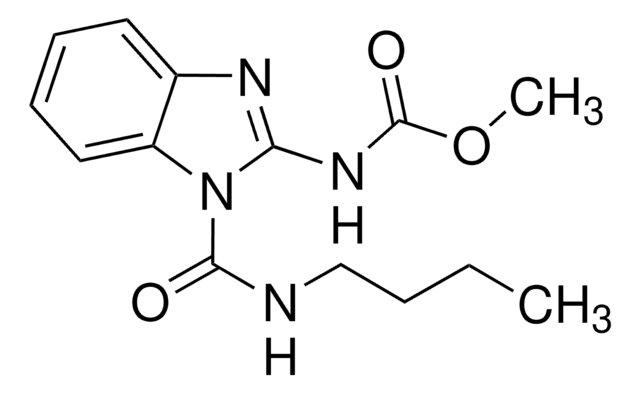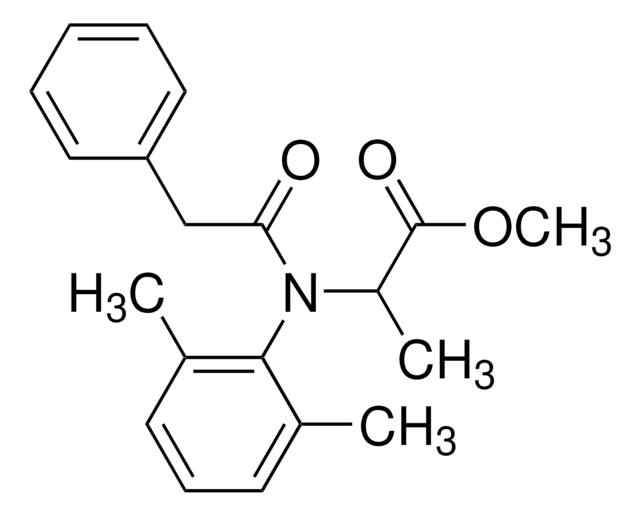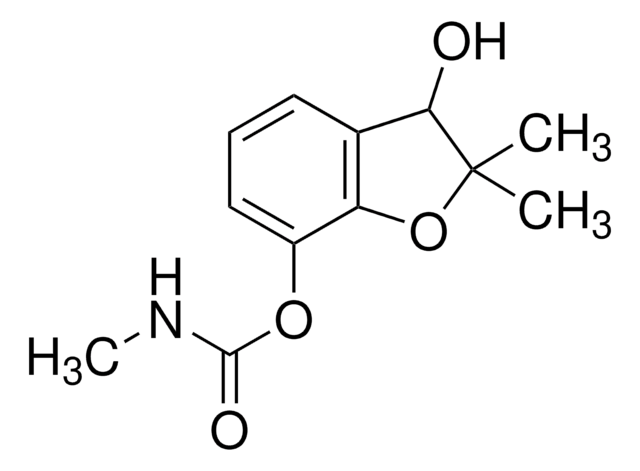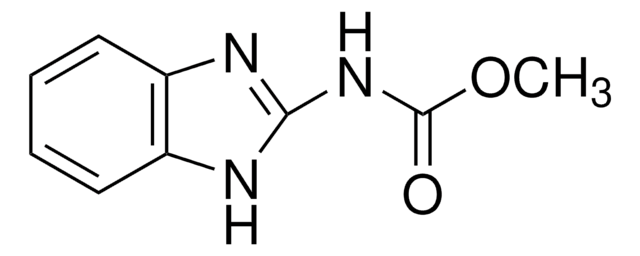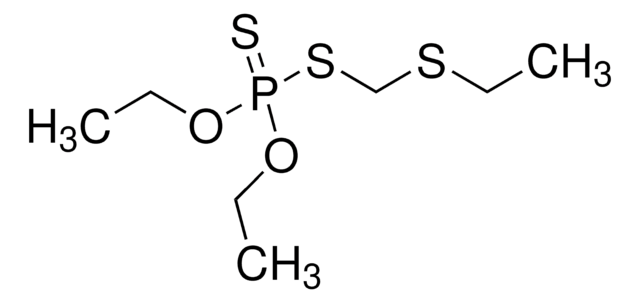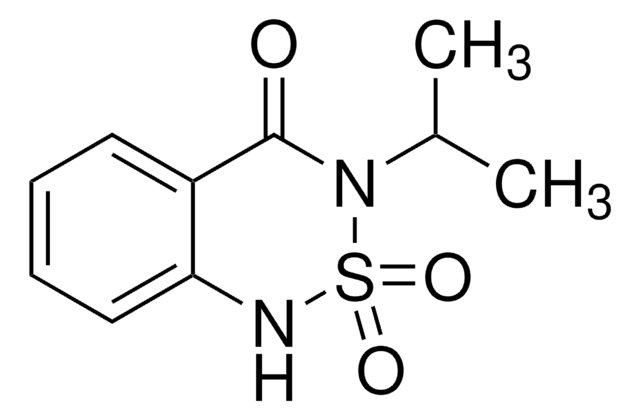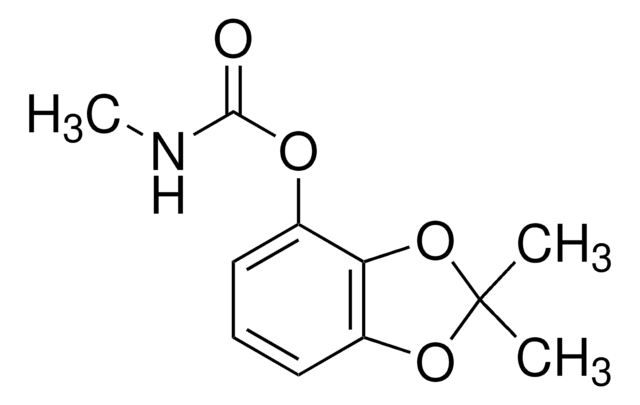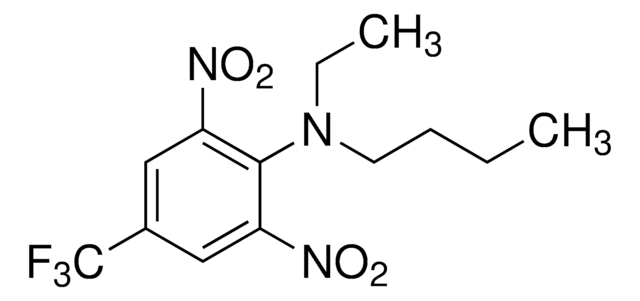About This Item
Recommended Products
grade
analytical standard
Quality Level
product line
PESTANAL®
shelf life
limited shelf life, expiry date on the label
technique(s)
HPLC: suitable
gas chromatography (GC): suitable
format
neat
SMILES string
CCOC(=O)CCN(SN(C)C(=O)Oc1cccc2CC(C)(C)Oc12)C(C)C
InChI
1S/C20H30N2O5S/c1-7-25-17(23)11-12-22(14(2)3)28-21(6)19(24)26-16-10-8-9-15-13-20(4,5)27-18(15)16/h8-10,14H,7,11-13H2,1-6H3
InChI key
FYZBOYWSHKHDMT-UHFFFAOYSA-N
Looking for similar products? Visit Product Comparison Guide
Related Categories
General description
Application
- In bananas by application of a modified QuEChERS procedure followed by ultra high performance liquid chromatography coupled to tandem mass spectrometry (UHPLC-MS/MS).
- In honeybees, honey and bee pollen by liquid chromatography coupled to tandem mass spectrometry.
Legal Information
Signal Word
Danger
Hazard Statements
Precautionary Statements
Hazard Classifications
Acute Tox. 3 Inhalation - Acute Tox. 3 Oral - Aquatic Acute 1 - Aquatic Chronic 1 - Repr. 2
Storage Class Code
6.1C - Combustible acute toxic Cat.3 / toxic compounds or compounds which causing chronic effects
WGK
WGK 3
Flash Point(F)
>212.0 °F
Flash Point(C)
> 100 °C
Personal Protective Equipment
Choose from one of the most recent versions:
Certificates of Analysis (COA)
Don't see the Right Version?
If you require a particular version, you can look up a specific certificate by the Lot or Batch number.
Already Own This Product?
Find documentation for the products that you have recently purchased in the Document Library.
Our team of scientists has experience in all areas of research including Life Science, Material Science, Chemical Synthesis, Chromatography, Analytical and many others.
Contact Technical Service